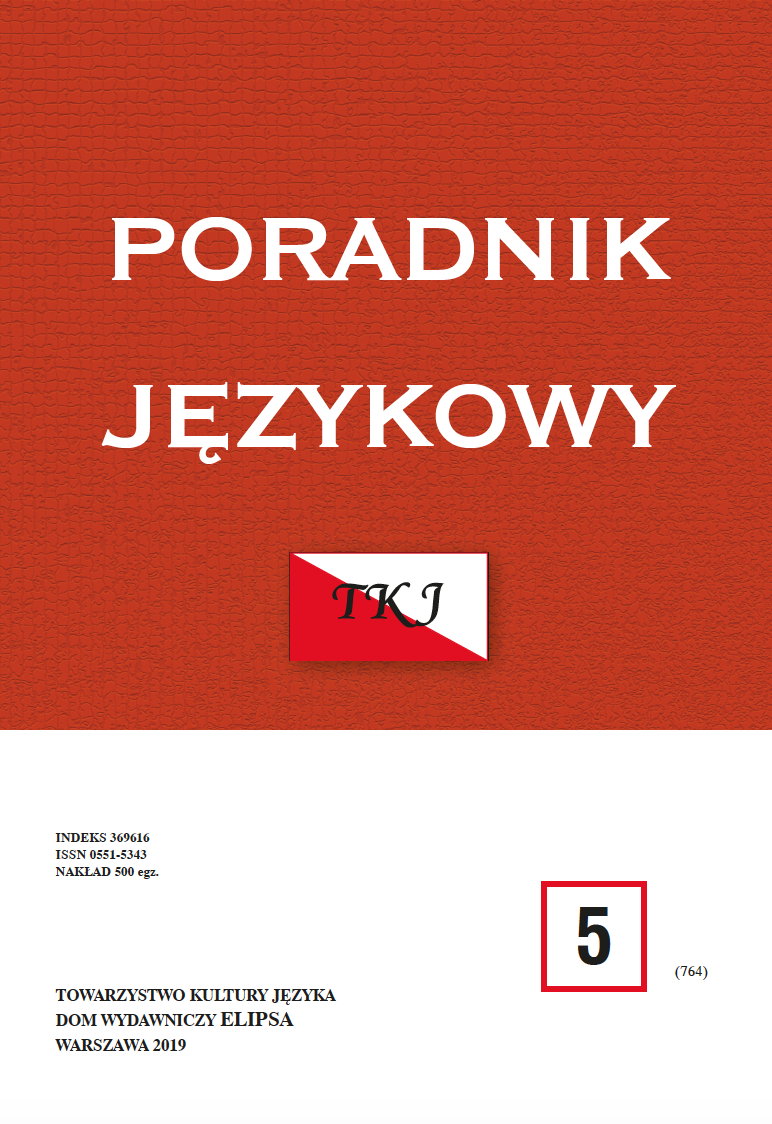O BIERNIKU LICZBY POJEDYNCZEJ RZECZOWNIKÓW MĘSKICH. UJĘCIE KOGNITYWNE
On singular masculine nouns in the accusative case. A cognitive approach
Author(s): Monika SzymańskaSubject(s): Theoretical Linguistics, Applied Linguistics
Published by: Dom Wydawniczy ELIPSA
Keywords: singular masculine nouns; accusative case
Summary/Abstract: The subject matter of this study is the phenomenon of replacing forms of singular inanimate masculine nouns in the accusative case equal to the nominative case by forms equal to the genitive case. The analysis of some examples of this mechanism is aimed to determine the pattern according to which this process takes place and where its causes can be sought. At the same time, it is an attempt to answer the question why the phenomenon of the ACC sg = GEN sg syncretism refers to some inanimate masculine nouns only (e.g. in common phrases such as wyrwać *zęba (to pull a tooth), zdjąć *buta (to take off a shoe), which are considered incompliant with the language standard), and not to others. The aim of the discussion is the fi ndings concerning the semantic function (role) of the genitive case in the linguistic structures where it occurs in the place of the accusative case equal to the nominative case that is sanctioned by the language standard and tradition. The analysed material (language expressions being a combination of verbs and subordinate singular nouns in the accusative case) was obtained from the National Corpus of Polish (NKJP) with the use of the PELCRA search engine. The methods applied for the purpose of this study were modelled on the research instruments of cognitive grammar. This because it was assumed that using ACC sg = NOM sg and using ACC sg = GEN sg are two different ways of coding and that choosing one of the possible methods of coding by the speaker is related to profiling situations and events, which takes place in their utterances and statements.
Journal: Poradnik Językowy
- Issue Year: 2019
- Issue No: 05
- Page Range: 67-78
- Page Count: 12
- Language: Polish
- Content File-PDF

